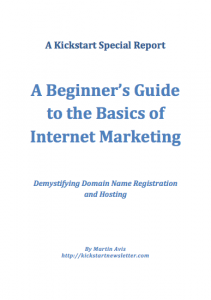Online self-branding – building a web presence with a digital portfolio
Fancy a career in the media? Be warned – it’s getting tougher
The industry as it was 15 years ago
The industry as it is today
[DISCLAIMER – images are subjective, conceptual and unscientific]
How can you stand out and succeed in such a market?
You need two key things:
- Visibility
- Credibility
BUILD • YOUR • BRAND
- Digital portfolio
- Blogging
- Web sites
- Social media
- Online networking
Digital portfolio
Create an e-magazine calling card
Digital services such as Issuu allow you to upload digital files to the web and create magazine-style content in an interactive Flash-based player.
Pros:
- Looks slick
- Shows off your print publishing skills
- Shows creativity and initiative
Cons:
- Not everyone likes the format
- Not a tool for developing relationships – passive calling card
http://freelanceunbound.com/2009/12/07/j-students-create-your-own-e-magazine-calling-card/
Blogging
Pros:
- Free, or very cheap, to set up
- Easy to learn, user-friendly technology
- Can have a wide reach
- Can be very targeted
- Useful platform to demonstrate expertise
Cons:
- Needs commitment
- Long-form blogging is in decline
Tools:
Blogger (http://www.blogger.com)
WordPress (http://wordpress.com)
Which is best? There’s a useful debate here:
http://www.bloggingpro.com/archives/2010/02/16/devils-advocate-5-reasons-why-you-should-use-blogger-instead-of-wordpress/
Blogger
- Instant monetisation through Google Adsense and Amazon affiliate links
- Can use Javascript
WordPress
- Better upgrade path to sophisticated self-hosted site
WordPress journalism blogs
http://adamwestbrook.wordpress.com/ – young and ambitious journalist
http://martincloake.wordpress.com/ – established professional
Web sites
Use as a static portfolio/calling card/CV
Pros:
- Can be more attractive than a simple blog
- Tailor it to your key selling message
- Less time and effort to maintain
Cons:
- Won’t get you found by search engines as easily
- Static sites are a bit 1990s
- Doesn’t help you interact with web users
Tools:
HTML/Flash
- Create your own pages and upload to a web host
- Use a web service such as wix.com
Standalone Flash site
VisionWorksTV – difficult to update; difficult to find online
How a static site backs up a blog
http://www.adamwestbrook.co.uk
http://www.martincloake.com
Social media and online networking
Increasingly the forum for journalistic exchange within the industry.
Facebook is much less useful – transfer your Facebook skills and drive to other platforms where you find your target audience (ie employers).
Seek out opportunities to interact with potential employers/media professionals:
- Blog comments
- Forums
Engage • Respond • Interact
Journalism is a conversation – take part!
Integrate your efforts
Tie all these together in a site with
- Regular updates
- Relevant content
- Social media links
- Porfolio pages
Web hosting and domain names
 What is web hosting?
What is web hosting?
Here’s a downloadable guide.
- Web hosting = where all your content is stored – the words, images, video and everything else that makes up your site
Where to get your hosting?
I use Bluehost
Pros:
- Reliable
- Good support
- Pretty easy to use – especially WordPress set-up
- Not too expensive (try to wait for its special offers)
Cons:
- Can’t use .co.uk domains
Some of my students recommend Just Host
Pros:
- Cheap (especially for three-year-plus contracts)
- Can use .co.uk domains
Cons:
- Slightly less easy to set up WordPress
What’s a domain name?
- Domain name = the web address of your site.
Where to get your domain name?
Can register a name with your host – simpler to set up, usually get the first one free with your contract
Many others offer domain registration – biggest seems to be www.GoDaddy.com (adds complexity to set-up – you have to link the domain to the web host)
[NOTE: These companies will pay me an affiliate commission if you follow the links here to buy domains or hosting of your own. Feel free to go elsewhere – or visit them without going through this site.]
Free services such as Blogger, WordPress and Wix do all the hosting for you.
Pros:
- Free (obviously)
- Simple
- Reliable
Cons:
- Limited functionality
- Can carry advertising/branding for the host so less professional for you
- Less control over look and functions
- Free service limits your domain name (must include blogspot.com or wordpress.com)
Sources for jobs
Journalism.co.uk (Now arguably the de facto journalist bible – a good online success case study in itself)
Media Guardian (Biggest and most high profile – but needs filtering)
Jobs4Journalists (Linked to former journo bible Press Gazette, which also has a jobs wire of latest vacancies)
HoldTheFrontPage (Niche journalism site from Northcliffe Media)
Gorkana (“Media database and portal for PRs and journalists” – getting more important)
Other possible sources
CiB – British Association of Communicators in Business (internal comms and PR)
PR Week jobs (PR)
People Per Hour (online freelance marketplace – not really recommended: pay is very low, job briefs are inept)
Blogs
Fleet Street Blues (regular posts about jobs – sometimes ones you won’t have seen elsewhere)
Freelance Unbound (I have posts on tips for freelance success and surviving recession etc)
Check your contacts on Twitter etc – I’ve had a feature writing commission and responded to a request for freelance sub-editors on Twitter.